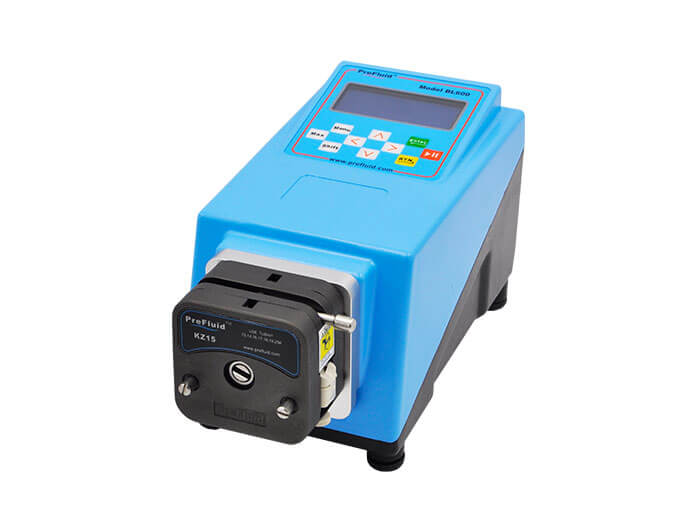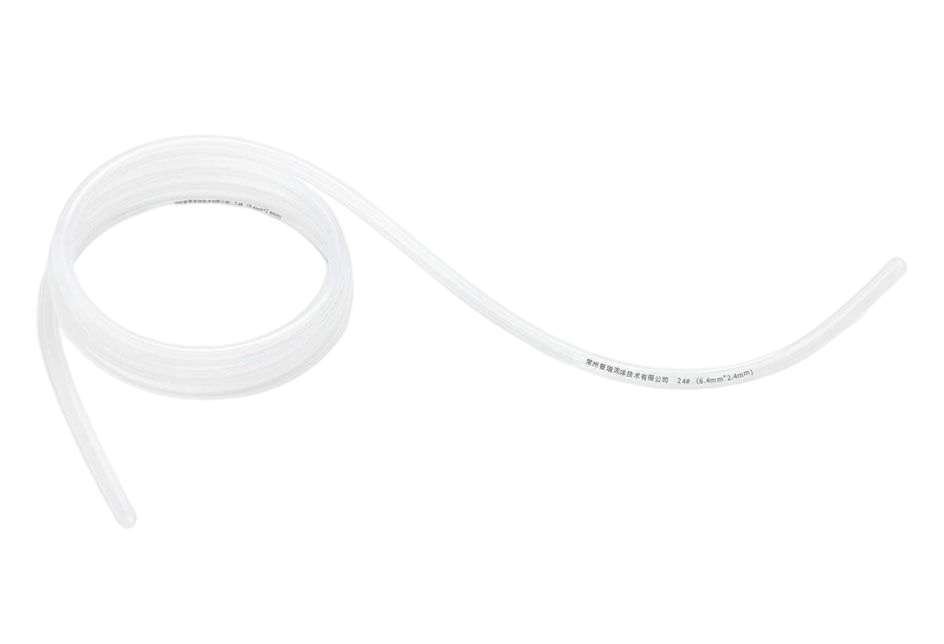Peristaltic pumps, also known as hose or tube pumps, work with positive displacement. Fluid is transported through the pipe by squeezing the flexible tube onto the pump housing through a rotating roller.
As the roller moves over the pipe, it expands and creates a vacuum to allow more fluid to enter. At least one roller closes the pipe during operation. So valves are no longer needed. The drum is turned directly by a motor or a gearbox.
Where is the peristaltic pump used?
Peristaltic pumps are ideal for use with corrosive and viscous fluids because the only part of the pump in contact with the fluid is the pipe. Because the pipe or pump head is easy to replace, the pump is relatively cheap to maintain and virtually maintenance-free. Therefore, industrial and medical peristaltic pumps are one of the most popular applications for tube pumps.
Speaking of examples in the medical device industry, peristaltic pumps are used to handle sterile fluids, dialysis, filtration or biological processing. In food, agricultural or disinfection markets, they are used for the distribution of food or beverages, vitamins or chemicals. The environmental sector uses hose pumps for wastewater treatment or condensate removal in gas analysis applications.
What are the benefits of peristaltic pump technology?
Dry run
self-priming
Reversible (DC)
Flow regulation
Ideal for use in viscous or corrosive media
Resistance to particle contamination
What are the types of peristaltic pump motors?
Common motor types for peristaltic pumps include brushed direct current (DC), brushless direct current (BLDC), alternating current (AC), or stepper motors. If the hose pump is driven without a gearbox, changing the motor speed can control the flow. Typical motor speeds for peristaltic pumps range from 0 to 400 revolutions per minute. Typically, DC and BLDC motors are used with gearboxes to set the speed according to flow needs. The stepper motor speed can be adjusted by using an external controller board.
How long does the peristaltic pump last? How to control the flow of peristaltic pump?
The flow rate is proportional to the motor speed. This makes peristaltic pumps suitable for distribution and metering applications. In order to choose the right motor, there are several aspects to consider. Dc motors come in different quality grades, with operating hours ranging from 500 to 4000 hours. The limiting factors for these motors are the brush system and bearings. In AC motors, the shadow pole variant has a service life of 1000 hours and the capacitor version has a service life of more than 10.000 hours.
For stepper and brushless DC motors, the limiting aspect is usually only the bearing system. In BLDC and stepper motors, the speed can be adjusted very easily during operation. These motor types are commonly used when variable flow rates are required.
All about peristaltic tubes
Typical peristaltic hose or hose materials range from silicone to thermoplastic vulcanized rubber (TPV) or PVC to fluororubber materials. When non-corrosive media need to be pumped, silica gel is usually used. Silicone is at the softer end of the range compared to other materials. TPV combines the processability of polypropylene with the elastic properties of EPDM. Commonly used TPV-based pipe materials are PharMed® BPT or Santoprene™. When more chemically aggressive media need to be pumped, fluororubber materials such as Viton® can be used.
When choosing the right pipe, it is crucial to choose the correct pipe size. When maximum tube life is key, a tube with a large bore and low motor speed is advantageous. For higher flow rates, large bore pipes and high motor speeds should be selected. When applications require high precision, the tubing should have a minimum bore and the motor speed should be high. For pumping, viscous liquid tubes should have a high wall thickness to ensure a quick return to their original shape.
Particles in the pipe may fall out into the fluid circulation in a process called spallation. Spallation should be avoided, especially in biological, pharmaceutical or medical applications. Special types of TPV materials exist, such as Versalloy™, which provide optimized properties to reduce spallation.
Peristaltic pump to consider what?
To reduce pulsation, many peristaltic pumps provide spring-loaded mechanisms to ensure smooth pumping action. This function is also important for shearing sensitive fluids, such as living cells. Another aspect to consider is adjusting the pump to different tube sizes depending on the desired flow rate.
More complex pump types also have adjustable occlusion. This feature helps to adjust the pump to different pressure levels that may occur in the fluid system. In addition, it helps to adjust the pump's performance according to different pipe materials. Depending on the type of fluid, softer pipes made of silicone are used, while for chemically demanding applications, fluororubber materials are required. These are usually much more difficult.
Peristaltic pumps stand out for their ease of use. The pipe or pump head can be replaced in seconds. The design without internal valves has different advantages. It can be operated clockwise and counterclockwise, so the liquid can be transferred in both directions if the process requires it. Because there are no valves, there are fewer restrictions in the pipe, which helps when a viscous medium needs to be transmitted.
In order to improve the efficiency of the product, a multi-channel peristaltic pump can be used. In this type of pump, a motor drives a pump head with up to 15 channels, each containing a separate pipe. In this way, different media can be transferred at the same time, and the same media can be distributed in multiple containers. The number of rollers used in a peristaltic pump has a significant impact on fluid handling. For higher flow rates, only two or three rollers are used. The disadvantage of this is the high pulsation. If the medium needs to be gently transferred, more rollers are usually used to maintain a moderate pulsation.
An important requirement in many medical or analytical processes is to avoid cross-contamination. The pipe is the only part in contact with the medium and can be easily closed after each process cycle.
Other applications include detergent distribution in industrial dishwashers, condensate removal in continuous discharge monitoring or dialysate transfer in dialysis machines.

